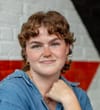Northwest Roanoke Leaders Aim To Change Narrative of a Once-Notorious Street. Now the City Wants To Get Involved, Too.
After years defined by disinvestment, Northwest’s 11th Street has recently attracted new attention from the city.
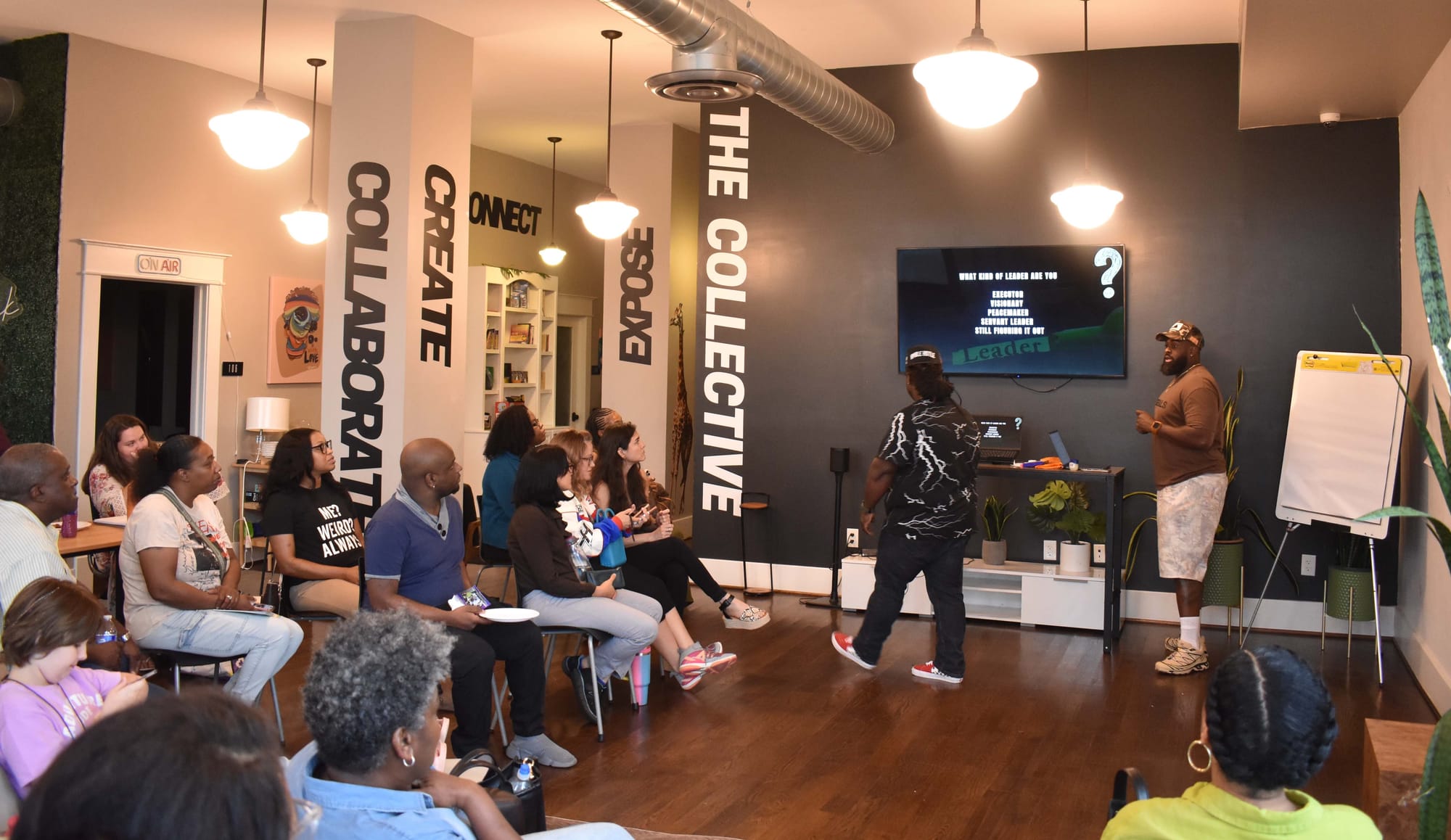
Growing up in Northwest Roanoke, Xavier Duckett knew 11th Street by its reputation — stories about danger, drugs and violence. The message was always the same: “Don’t go there.”
As an entrepreneur and nonprofit leader, 34-year-old Duckett has dedicated his career to empowering Roanoke’s Black community — and telling a new story about Northwest. So when it came time to open a storefront for his clothing brand in 2018, Duckett knew exactly where he wanted to be: 11th Street.
“To me, it was like, what better street to change the narrative of?” he asked. “There's no limit on what you can create here, because nobody else is going to do it.”
After years defined by disinvestment, Northwest’s 11th Street has recently attracted new attention from the city. The Roanoke Main Street initiative — part of a state-wide community development program — is targeting 11th Street for revitalization. Roanoke’s plan emphasizes “affordable housing, shared ownership opportunities and community-driven investment,” according to the Virginia Main Street website. But when the Main Street group visited 11th Street to kick off the project, it did so without notifying some of the street’s most prominent leadership — including Duckett.
For Duckett and others who’ve spent years working in the community, this was frustrating, but unsurprising. It’s a pattern Duckett said he’s seen his entire life: Outside investors arrive late, overlook those already doing the work and decide what communities need without asking them first.
In June, the Main Street initiative invited developer and former city councilman John Garland to join its kick-off meeting. Garland owns the building Duckett works in on 11th Street. But Garland said he couldn’t understand why Duckett wasn’t invited, too.
“He certainly needs to be involved,” Garland said, “because as far as boots on the ground, he's the main person.”
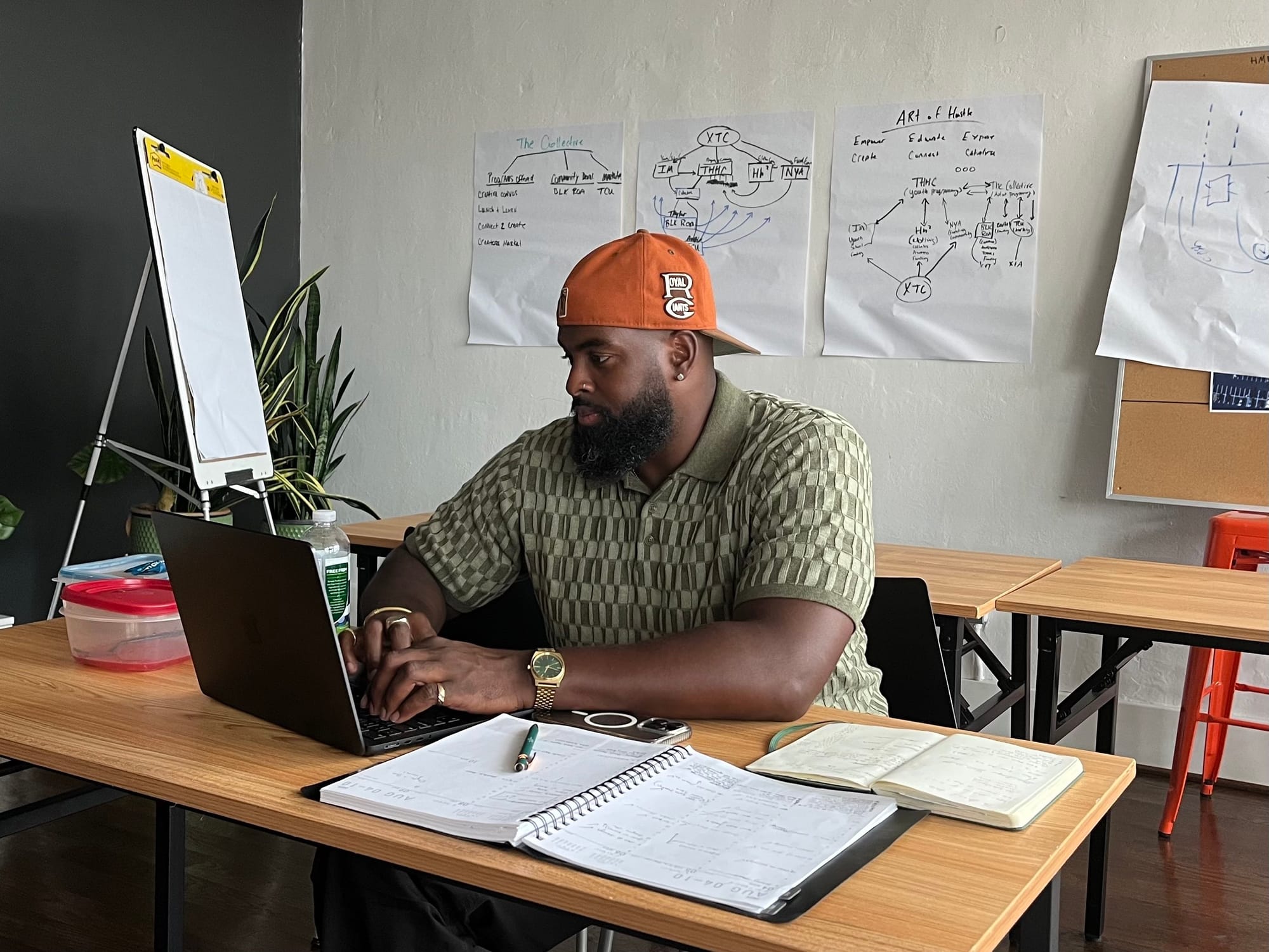
Building the ecosystem
At the intersection of 11th Street and Moorman Avenue, two buildings immediately stand out: The Hope Center, painted bright white, and The Collective, Duckett’s building. On a street lined with aging, vacant properties, The Collective is impossible to miss. Two vibrant murals — one celebrating the Northwest community, the other honoring rapper and activist Nipsey Hussle — stretch across the brick exterior.
When Duckett first moved in, the building was divided between several tenants. Over time, as those tenants came and went, Duckett expanded his footprint into the rest of the space. In 2023, he officially launched The Collective, a coworking and event space that now serves as the headquarters for his slate of community-focused businesses and nonprofit programs.
Over the past decade, Duckett has worked to create what he calls an “ecosystem” of support, centering Roanoke’s underserved communities. His Imagine Me Mentoring program partners with Roanoke City Public Schools to provide academic and social support for students in need. His expansive nonprofit, The Humble Hustle, offers everything from outdoor education to a girls’ empowerment program — all designed to expose Black youth to new experiences and provide lasting opportunities. He also hosts a steady stream of adult-focused events, including inspiring workshops, music festivals and block parties.
The programs are designed to offer a comprehensive response to the inequality Duckett was surrounded by growing up in Roanoke.
“We live in a city where you could literally come to the city and not see Black people at all,” he said. “You can stay downtown, go to Southwest, Crystal Spring, and you'll never really see the Black area.”
The divide wasn’t just about geography — it was the resources that came with it. When Duckett returned to Roanoke after studying counseling at Old Dominion University, he saw just how much a ZIP code could shape a child’s future.
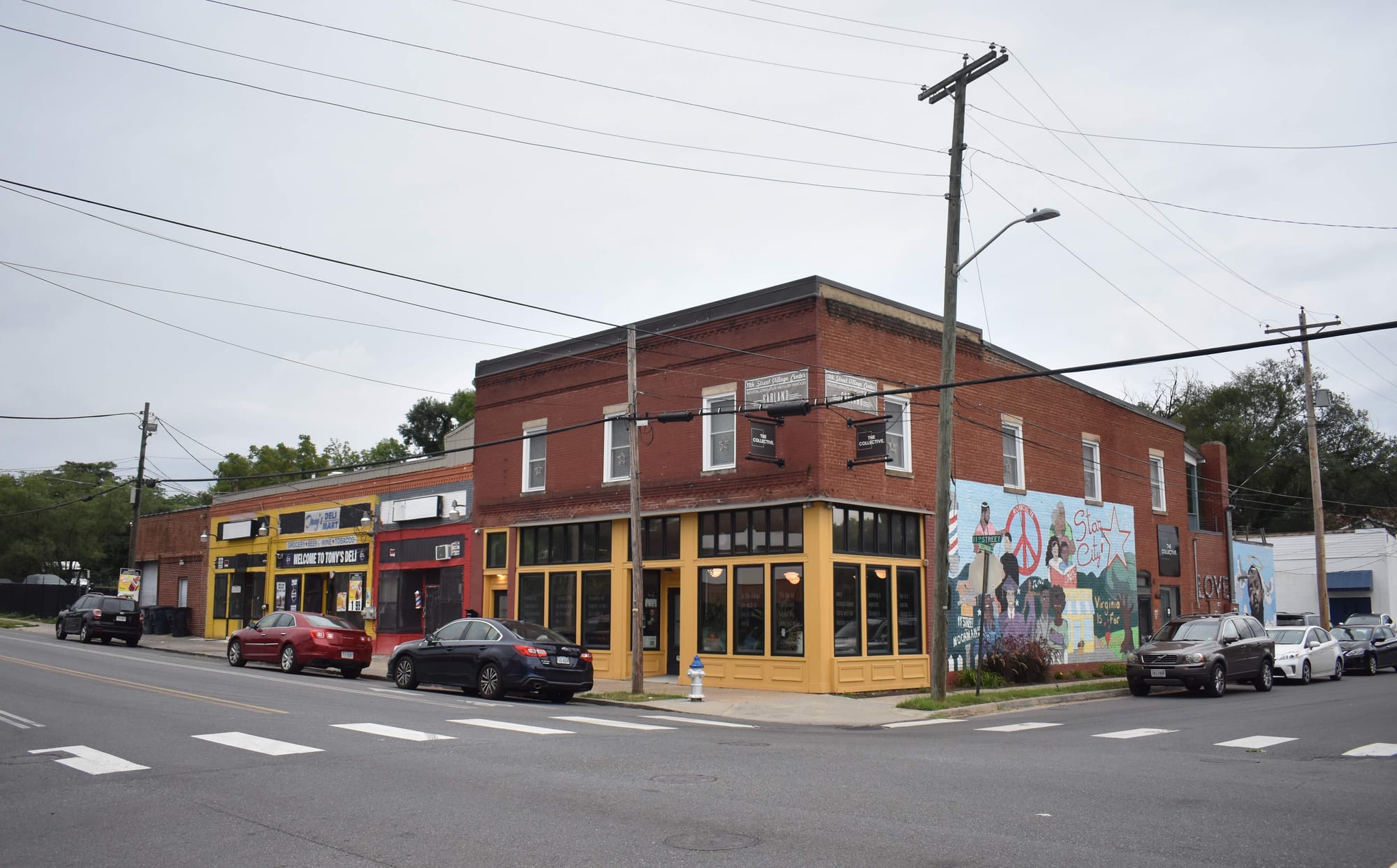
“There’s two way different points of view here,” he said, referring to the divide between Northwest and the rest of the city. “They see Roanoke in a completely different light than we see it.”
One example: access to the outdoors.
According to a 2024 report by the Outdoor Industry Association, about 8 percent of outdoor recreation enthusiasts were Black — a racial imbalance that Duckett sees in Roanoke, too. While hiking, biking and kayaking in the mountains is common in other parts of the city, Duckett said many of the kids he’s worked with have never been.
In Northwest, kids can see the mountains from their neighborhoods, Duckett said, but many cannot imagine how they could get there. Whether it's a lack of transportation, parents busy working multiple jobs or the hurdle of trying something new, The Humble Hustle bridges the gaps to get kids to the trails. On a recent outdoor education trip, The Humble Hustle led more than 40 kids up a mountain. None of them had ever been on a hike before, Duckett said.
From the Civil Rights Movement, to urban renewal, to the most recent demands for racial justice, Roanoke’s Black community has “been pushing for equity for years,” Duckett said. While he recognized some response from the city — like its $10 million investment in Melrose Plaza, Goodwill’s new hub for groceries, healthcare and education — he said the response has not completely met the needs of the Black community.
“There's not enough attention to detail for the Black population — making sure that it has a strong platform to uplift itself,” he said. “It's kind of just sprinkled out, and never enough to where there's true change.”
In a response to a Rambler email detailing concerns about the perception of insufficient investment in Northwest, Mayor Joe Cobb wrote that the city is currently “making substantial investments,” citing Melrose Plaza, “the redevelopment of the Eureka Park Recreation Center, the new Washington Park Pool and forthcoming master plans for McCadden and Washington Park, and the major street infrastructure improvements along Melrose Avenue and Orange Avenue.”
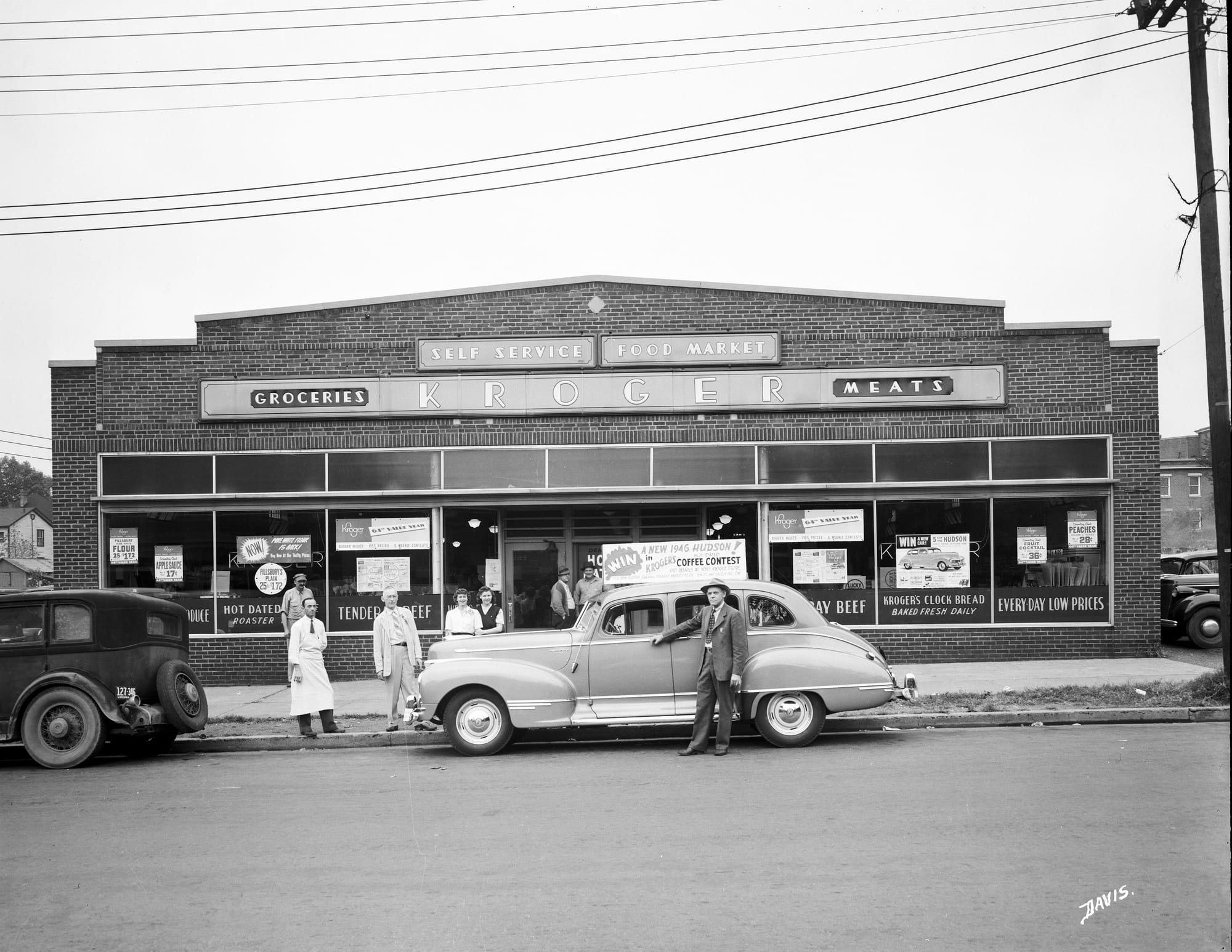
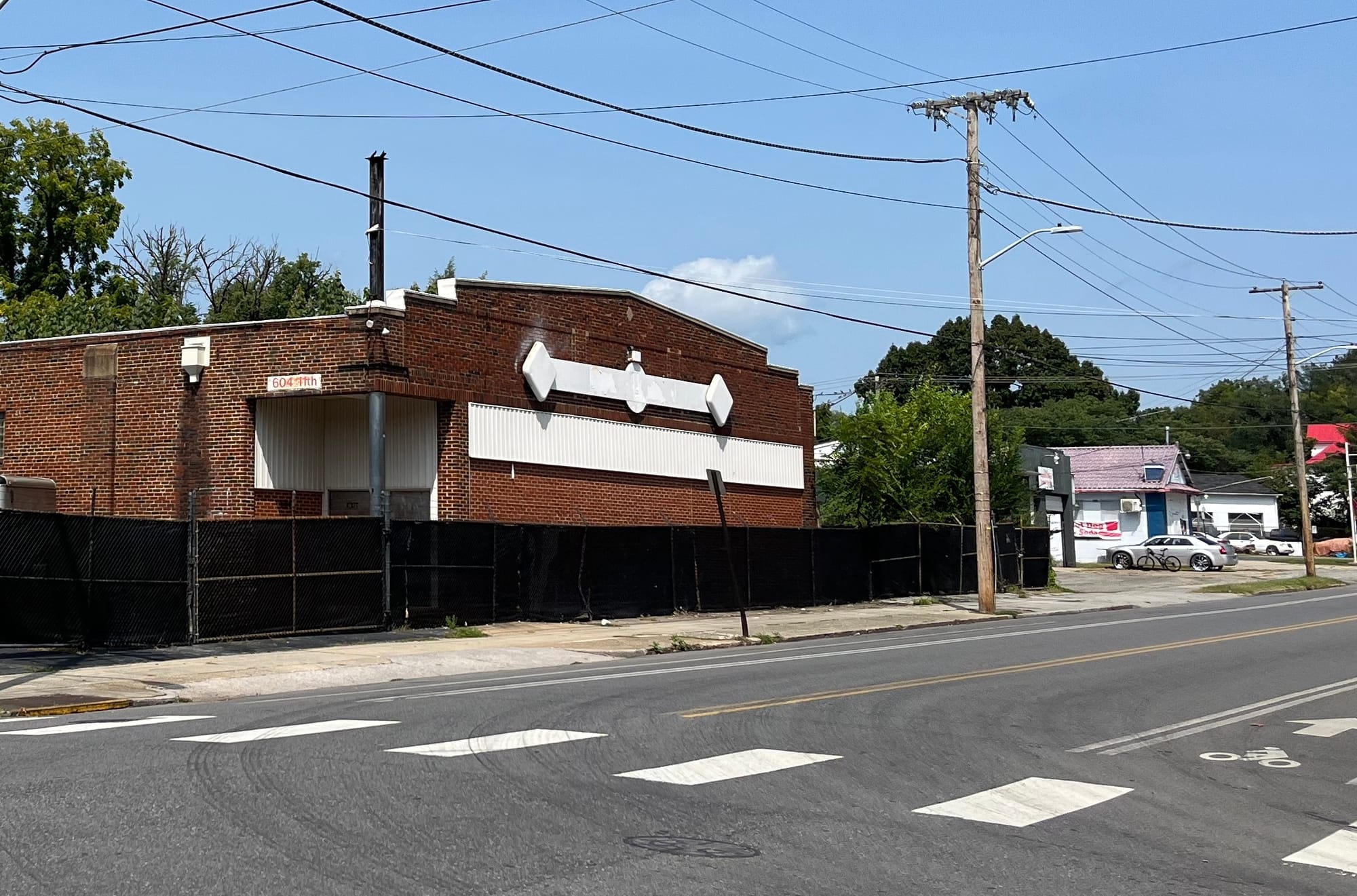
Left, a Kroger was once a part of 11th Street community village. COURTESY OF THE VIRGINIA ROOM AT ROANOKE PUBLIC LIBRARIES. Right, the building as seen today is aged by time and set off by fencing. PHOTO BY SINCLAIR HOLIAN FOR THE ROANOKE RAMBLER
New era, old patterns
To Duckett, the work happening within The Collective is the solution — a rejection of 11th Street’s old reputation and a symbol of hope for the future.
Garland, the building’s owner, sees 11th Street through a different lens. He recalls a time when it was a “community village,” complete with a drugstore, hardware store and electronics shop. In those days, the building that now houses The Collective was a motorcycle dealership, and the now-unoccupied building across the street was a Kroger.
The history of community villages is still visible in areas like Grandin and Crystal Spring. But on 11th Street, Garland said, it’s a different story.
“Most people don't know what used to be there on that street because of what it looks like now,” Garland said.
Garland Properties acquired the 11th Street building in 2017, hoping to drive a new wave of investment that would eventually revitalize the street’s historical role as a community village. Duckett, with his vision for community-building, was a natural fit as a tenant. Over the years, Garland said he’s invested about $550,000 in the project and that it's been profitable.
But beyond his own building, Garland’s vision of a bustling community village has not come to life. Other investors, he said, have not expressed interest in the street.
“It's been a little disappointing,” Garland said. “It's been very slow. It seems like it takes a long time” for the private sector to get involved.
Garland critiqued other property owners who’ve used buildings on 11th for storage, allowing them to remain in a state of disrepair. His suggested solution: Have the city acquire those buildings and offer them to developers for proposals.
Aaron Garland, who works with his father at Garland Properties, puts it simply: “It’s not rocket science. The street will not change without private development. And hardly anybody wants to do any here.”
The clearest path to progress, he said, requires a combination of public and private investment.
“[11th Street] is not a magnet for private development,” he said. “That's a place where the government steps in and helps leverage things.”
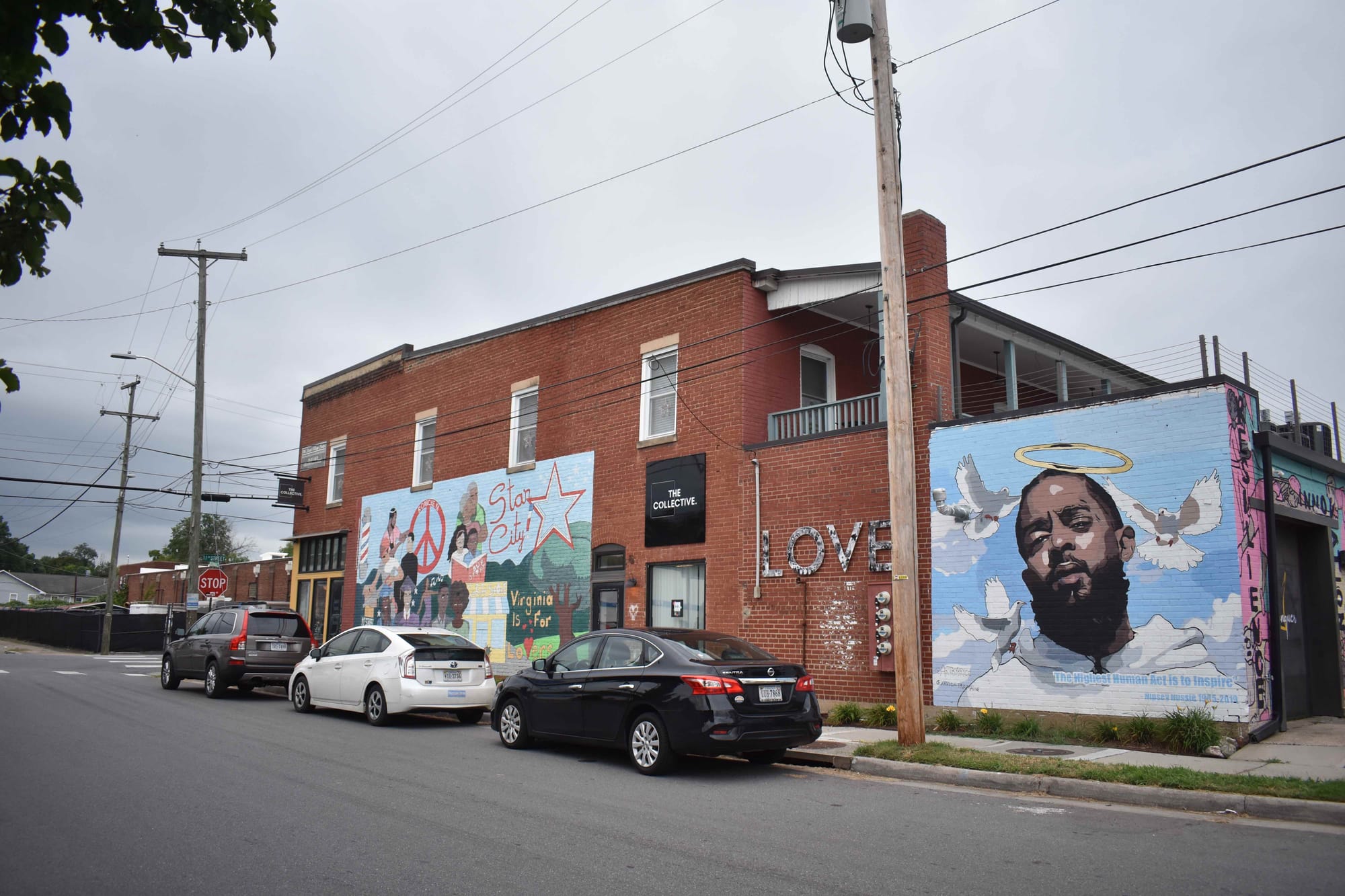
Unexpected visitors
On a rainy day in June, Austin Bratton was in the middle of a typical busy workday at The Collective. But when she looked up, she spotted something unfamiliar: a group of mostly white visitors peering through the windows.
Bratton, who works as The Humble Hustle’s brand manager, felt anxious.
“In the neighborhood we’re in, I’d never seen this many white people — respectfully,” she said. “Seeing them just canvassing around was just so… I don’t know, different.”
She called Duckett, watching from inside as they continued down the street. Later, they learned who the group was: representatives of Roanoke’s Main Street initiative.
The Virginia Main Street program — part of the state’s Department of Housing and Community Development — aims to revitalize historic commercial districts in communities across Virginia. The program’s goal is to attract investment by developing a pipeline of vacant spaces, buildings, businesses and developers in targeted districts.
This year, Virginia Main Street selected Roanoke (alongside Danville and Lynchburg) to receive $70,000 to support its local Main Street project. The Roanoke program will focus on five areas: 11th Street Northwest, Gainsboro, Melrose Avenue at 24th Street, West End, and 9th Street Southeast.
Economic Development Specialist Mandy Cribb is spearheading the initiative. In an email response to questions about the project, she shared that a group of “city staff, city-wide stakeholders, [and] small scale developers” convened in June for a meeting led by the nonprofit Center for Community Investment.
“Once we identified which neighborhood we were going to focus on for this grant, we began to connect with established community leaders to partner with for community engagement and event planning,” she wrote.
Early outreach included Garland and other developers, but not Duckett.
“It was kind of disrespectful,” Duckett said.
Bratton felt the same.
“There's no way that you don't notice this building — the amount of murals, the paint colors,” she said. “Like, if I was to knock on doors in this neighborhood, the first doors I'm looking at are this one and The Hope Center.”
Weeks later, Duckett spotted the Main Street group back on 11th Street. This time, as they passed in front of the building, he invited them in for a tour. He also made sure to secure a spot for himself and Bratton at the group’s next gathering.
At the meeting, they quickly realized they were the only ones from the 11th Street community, Duckett said.
“It was an eye-opener for me,” Bratton said. “If you're not consulting with the people who are in this neighborhood from day to day, there’s no way the community will get behind this.”
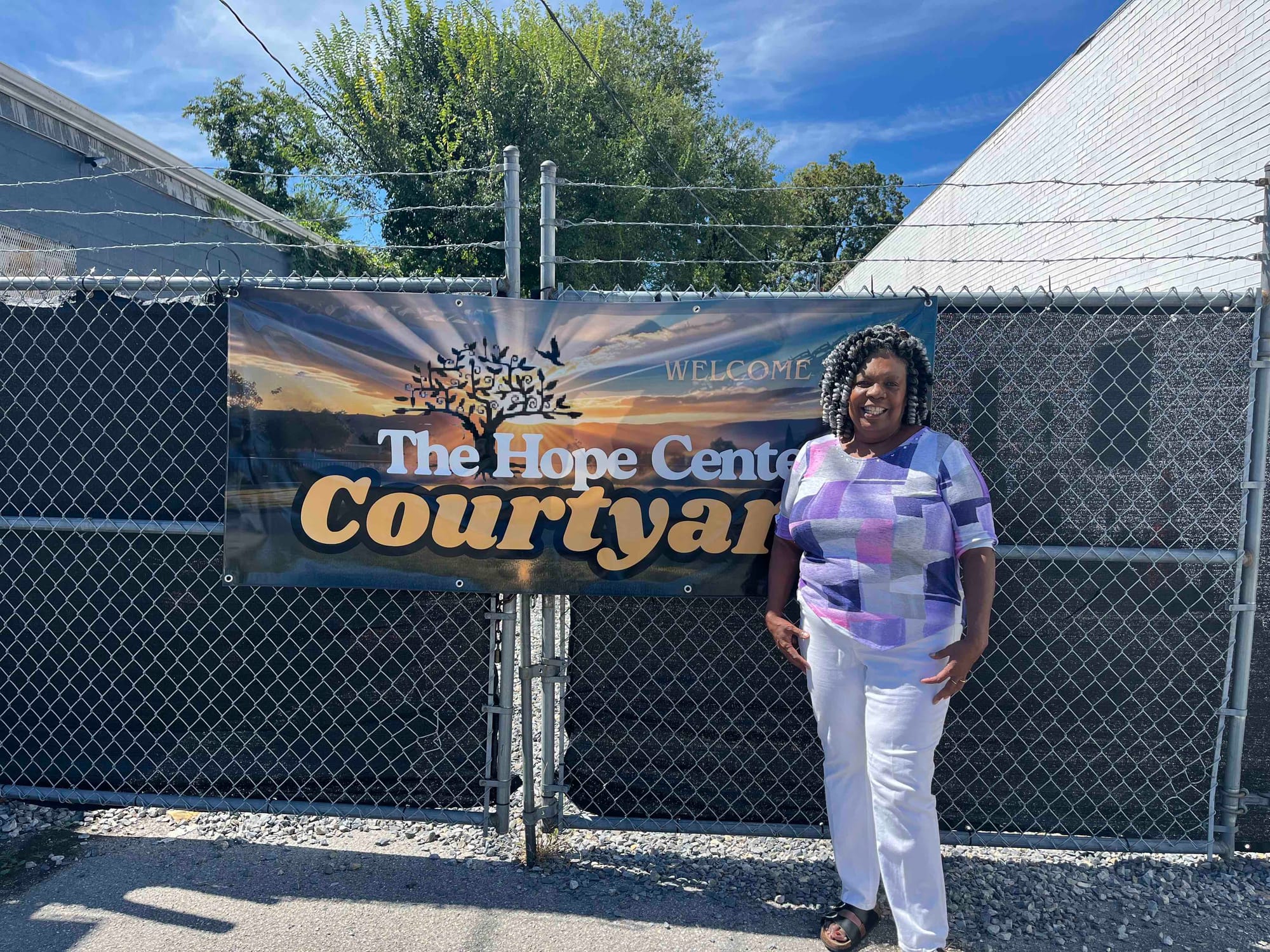
Part of the job
Darlene Lewis, executive director of The Hope Center, didn’t receive an invitation to be a part of the meetings, either — and she said she wasn’t surprised. She learned about the Main Street project for the first time in an interview with The Rambler last week.
Lewis grew up in Northwest, just a few streets away from The Hope Center. She founded the community center in 2015, and runs it on a simple philosophy: “Get to know them, listen to their stories and find out what they need.”
The past decade has been filled with feeding, clothing, and housing people on 11th Street, she said. She’s also been an emotional provider — a constant shoulder to cry on, and “Ma” to many of her clients.
Being overlooked, she said, has always come with the job.
“You get used to it,” she said. “I think for me, being here for 10 years, I'm used to being ignored.”
For Lewis, building community trust on 11th Street has been a years-long process. She shared concerns about the project’s ability to meet the needs of the street without having spent the time there.
“You can’t be sitting around making plans for this neighborhood until you’ve walked it,” she said. “I felt like I couldn't be effective in this neighborhood until I first found out what the need was.
“So until you're over here, or you've spent time over here, then no,” she said. “Don’t come.”
In an email to Cribb, The Rambler asked about the Main Street initiative’s plans for community involvement.
“We are beginning to build an 11th Street stakeholder group, which we intend to be fully community-led.” Cribb wrote. “We are simply bringing these tools and resources (and some grant funds) to guide the community through this process. In partnership with established neighborhood leaders and organizations, we will begin hosting community events this fall to engage with residents, businesses, and visitors to learn how they envision a walkable, vibrant neighborhood center.”
Events currently being planned include an ice cream social, a festival, community dinners and a “community visioning walk.”
Cobb said he believes leaders such as Duckett and Lewis “should be integrally involved" with the Main Street initiative.
“As they are key players and stakeholders in 11th Street's current and future development, I would hope every effort is made to include them, along with interested local business owners and residential neighbors,” Cobb said in an email. “We need solid community engagement to continue building this corridor into a vibrant neighborhood center.”
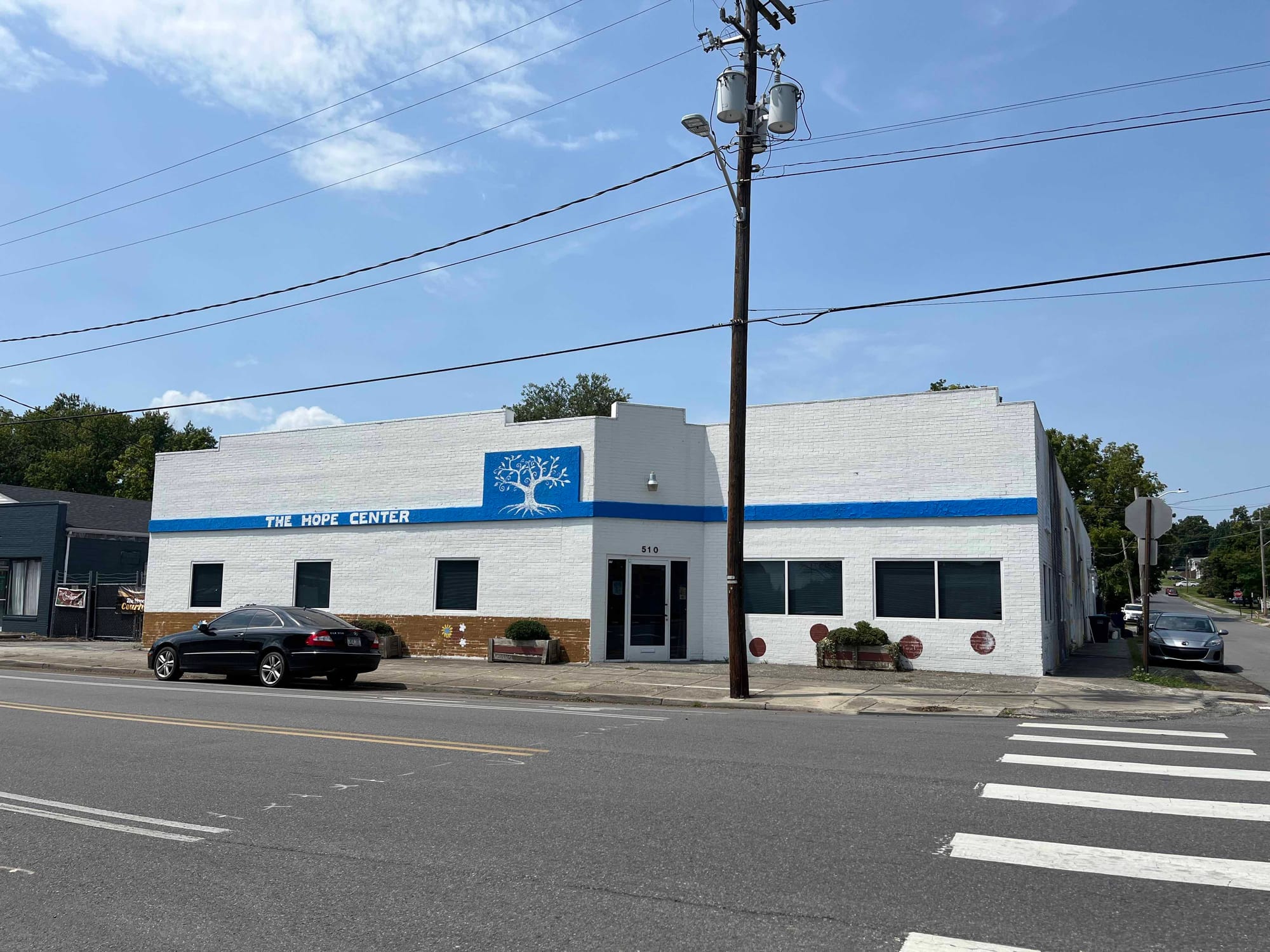
Down the road
While Lewis’s Hope Center and Duckett’s Humble Hustle offer different services, they share a similar vision: changing the narrative of 11th Street.
To Lewis, who remembers the days when people were terrified to sit on their porch, progress is happening. The day-to-day grassroots work has transformed the street, she said.
“This 11th Street corridor is turned around,” she said. “The water ice man is on the corner. The barber shop is on the corner. Xavier is on one corner. I'm on the other corner. We've worked this neighborhood, and this street is safe.”
As the Main Street initiative unfolds, Lewis has two requests: job opportunities for the surrounding community and affordable housing — two resources neither she nor Duckett can provide.
According to Cribb, a key part of Main Street’s goal is “to increase the opportunity for more housing and commercial use in the neighborhood center and to (begin to) activate and redevelop two properties for mixed use in the next 24 months.”
Over the years of steady work, Duckett has felt the same shift in attitude towards 11th Street. Once a street that came with endless warnings, it’s now the site of block parties, creative markets, classes and community.
“We’ve changed the dynamic of what people think that this place has to look like,” he said. “And when they leave, they're like, ‘Damn. This is a beautiful street.’”

